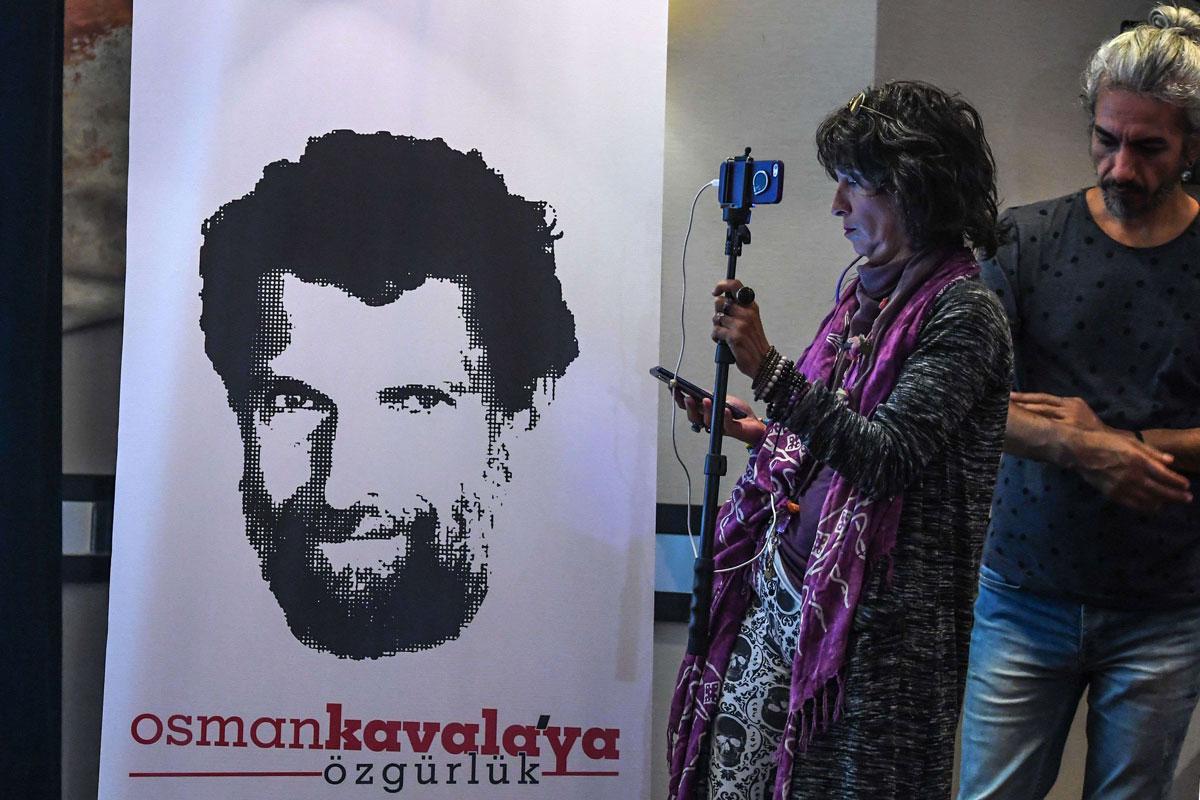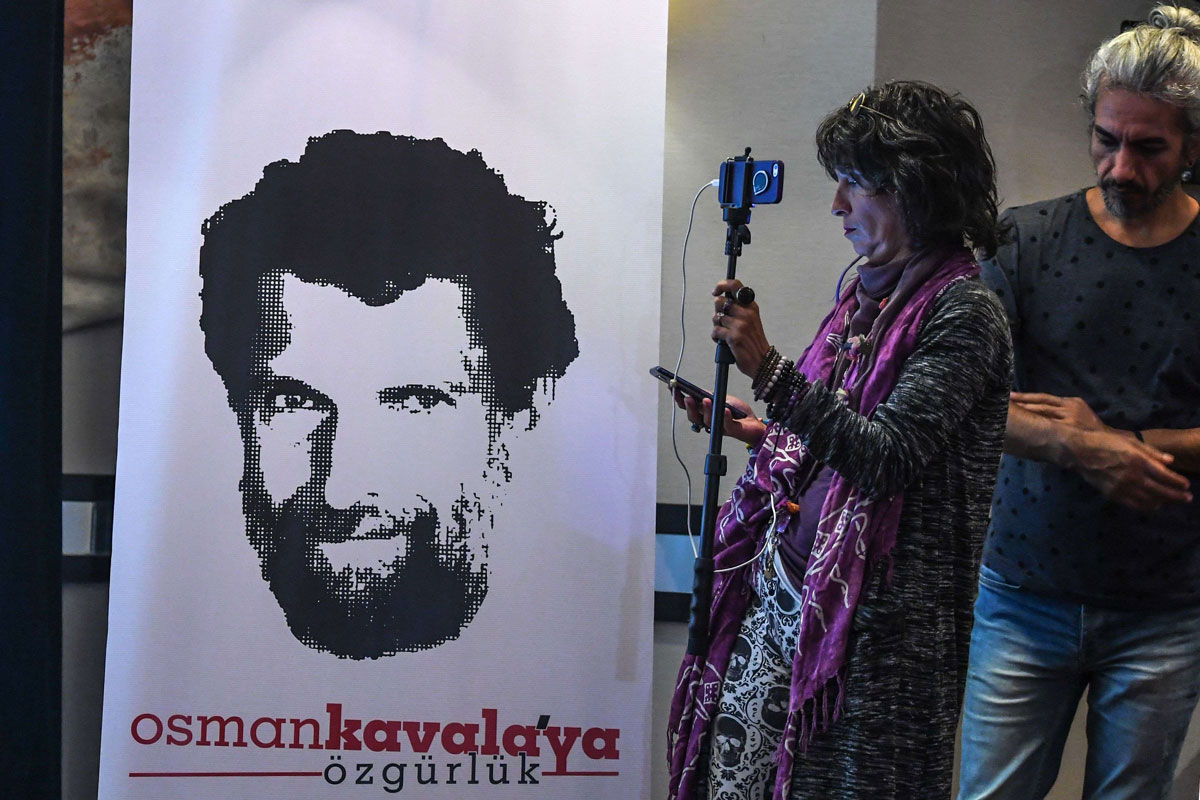Turkish court keeps philanthropist Kavala in jail
ISTANBUL - Renowned Turkish philanthropist and rights advocate Osman Kavala, accused of seeking to overthrow the government, was kept in custody at his latest court hearing on Tuesday after more than 700 days in detention.
Kavala is accused of orchestrating the "Gezi Park" mass protests in 2013 in a trial described as "absurd" by rights groups.
At the third hearing in Silivri on the outskirts of Istanbul, the court ruled that Kavala would remain in jail until the next hearing on December 24, according to support group "We Defend Gezi".
Rights groups, opposition politicians and Western governments say the 2013 protests, which began over plans to build over Gezi Park in Istanbul, had no leadership and that Kavala is being targeted because he supports democracy and the rule of law.
They say the case is a test of how far Turkish president Recep Tayyip Erdogan will go in muzzling dissent.
Prosecutors claim the Gezi protests were organised from outside the country in order to "bring Turkey to its knees" as part of a plot to topple Erdogan, who was Prime Minister at the time.
The indictment says Kavala had discussed bringing milk, juice and pastries to Gezi, as well as gasmasks to counter the effects of tear gas, which showed he was financing the protests.
Asked in court about the evidence, Kavala said he had bought pastries and some doctor's masks for the protests, but "believed that these masks would be used by the young people in the park for peaceful goals".
"During the Gezi protests, the tear gas from around the area was also affecting Gezi Park," he said.
"In 635 pages of the indictment there is no evidence of [Kavala's] involvement in a conspiracy or organisation of Gezi Park uprisings," Murat Celikkan, of Turkey's Human Rights Association, said in a press briefing last week.
"They want to show that they can touch anyone... It's fear politics," he added.
Kavala is one of 16 Turkish businessmen, academics and artists who face life imprisonment if convicted.
Celikkan said the lead judge had been removed from the case after twice voting for Kavala to be freed from detention during the trial.
Kavala has been in jail since November 2017, and has become a symbol of what activists say is the deliberate targeting of civil society.
A prominent businessman and civil rights figure who has been active in liberal causes, Kavala is chairman of the Anatolian Culture Foundation, which seeks to bridge ethnic and regional divides through art, including with neighbouring Armenia, with which Turkey has no diplomatic ties.
"He's a bridge-builder, reaching different parts of the country. That alone breaks taboos in Turkey. He's a great advocate of the rule of law and a democratic Turkey," said Emma Sinclair-Webb, of Human Rights Watch.
At the time of the Gezi protests, Kavala sat on the board of the Turkish branch of financier George Soros's Open Society Foundation. He said the charity had not provided any financial support to the protests.
The court set Dec. 24-25 as the date for the next hearing in the case and remanded Kavala to jail during the trial. The trial began in June against a backdrop of concern about growing authoritarianism in Turkey, where tens of thousands have been arrested in a crackdown on dissent since a failed military coup targeting Erdogan in 2016.
The Gezi demonstrations in the summer of 2013 started as a protest against the redevelopment of the park in Istanbul, a city with limited green space, and quickly spread across the country. President Erdogan says the environmental protests were really a cover for an attempt to dislodge his government from power.



